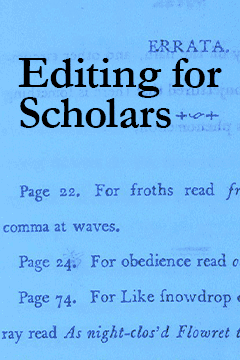Trade Violence
Trade Violence
Stephen Coats: Trade Violence
In the debates on trade policy on the campaign trail this year, little notice was paid to a powerful new argument handed down by the Obama administration, which gives even more reason to oppose the free trade model represented by NAFTA (the North American Free Trade Agreement), CAFTA (the Central American-Dominican Republic Free Trade Agreement), and pending agreements like the one with Colombia: violence against trade unionists isn?t covered by the labor protections in these agreements.
The Colombia Free Trade Agreement (FTA), modeled after NAFTA and CAFTA, has been bottled up since 2006 due to concerns about continuing violence against trade unionists?a concern expressed by Obama himself. Proponents of the Colombia FTA, including the Colombian government, correctly point out that there was a significant decrease in violence against trade unionists in Colombia after Álvaro Uribe was elected president in 2002. Progress, yes, but not nearly enough: Colombia still leads the world in number of trade unionists murdered annually, with forty-eight trade unionists murdered last year. And so far in 2010, assassinations of trade unionists in Colombia are on a pace to exceed last year?s world-leading level.
Obama?s U.S. Trade Representative Ron Kirk recently announced with some fanfare that the administration would finally move forward the first labor complaint submitted under CAFTA, filed against Guatemala by the AFL-CIO and Guatemalan trade unions over two years ago. One of the key issues raised in the complaint is violence against trade unionists. It?s been on the upsurge, perhaps not coincidentally, since the 2006 implementation of CAFTA. Guatemala is now second, following Colombia, in the number of trade unionists murdered.
But there?s a new wrinkle. Lost in the press stories which praised (or criticized, depending on one?s point of view) the administration for taking the labor complaint to the next level is this: the U.S. Trade Representative (USTR) has apparently decided that, according to CAFTA, violence against trade unionists is not a labor violation, and not under its purview. While USTR and the Labor Department expressed concern about violence, the issue was raised separately, outside of the official CAFTA process, as clearly evidenced by their joint letter to the Guatemalan government asking for formal consultations.
So what does this mean for the Colombia FTA and violence against Colombian trade unionists? Nothing good. Human rights advocates have already expressed concern that if the FTA is passed, the political incentive to keep murders ?down? will disappear and violence will jump even higher, just as has happened in Guatemala. Now, we learn that assassinations of trade unionists aren?t even considered a labor violation under the Bush-era FTAs. Sanctions, such as they are under these FTAs, don?t even apply. Given how USTR is handling the CAFTA complaint, any trade leverage we have with Colombia to address violence and impunity will evaporate if the Colombia FTA is passed.
The rules of CAFTA have already proven incapable of protecting basic democratic institutions in the face of a military coup. After the duly-elected president of Honduras was thrown out of his office and country in June 2009, the president of the Dominican Republic promptly called for a suspension of CAFTA, but it was futile. The call went nowhere because there is no clause in CAFTA that conditions participation in the agreement on respect for democracy or the electoral process.
This stands in marked contrast to what we had in place before CAFTA. The last time there was a military coup in Central America, in Guatemala in 1993, USTR publicly threatened the suspension of trade benefits. The coup collapsed in three days. As the New York Times reported on the reasons for the collapse of the 1993 coup,
Most important, it seems, was the concern of business leaders that Guatemala?s rising exports to the United States and Europe could be devastated if threatened sanctions were imposed. Within hours of an American threat to cut Guatemala?s trade benefits, business leaders who in the past had supported authoritarian rule began pressing government and military officials to reverse [the coup.]
Last year we learned that Bush-era FTA rules don?t protect democracy, a primary goal of U.S. foreign policy. This year we?ve learned that the labor protections of FTAs don?t even protect labor from the most basic of human and worker rights: the right to life. It?s time for a fundamentally different trade model–one that creates a sustainable and equitable economic globalization that protects the rights of workers and democracy, as well as the environment, consumers, small farmers, and small business. A model more like the one that Obama once promised, way back on the 2008 presidential campaign trail.




